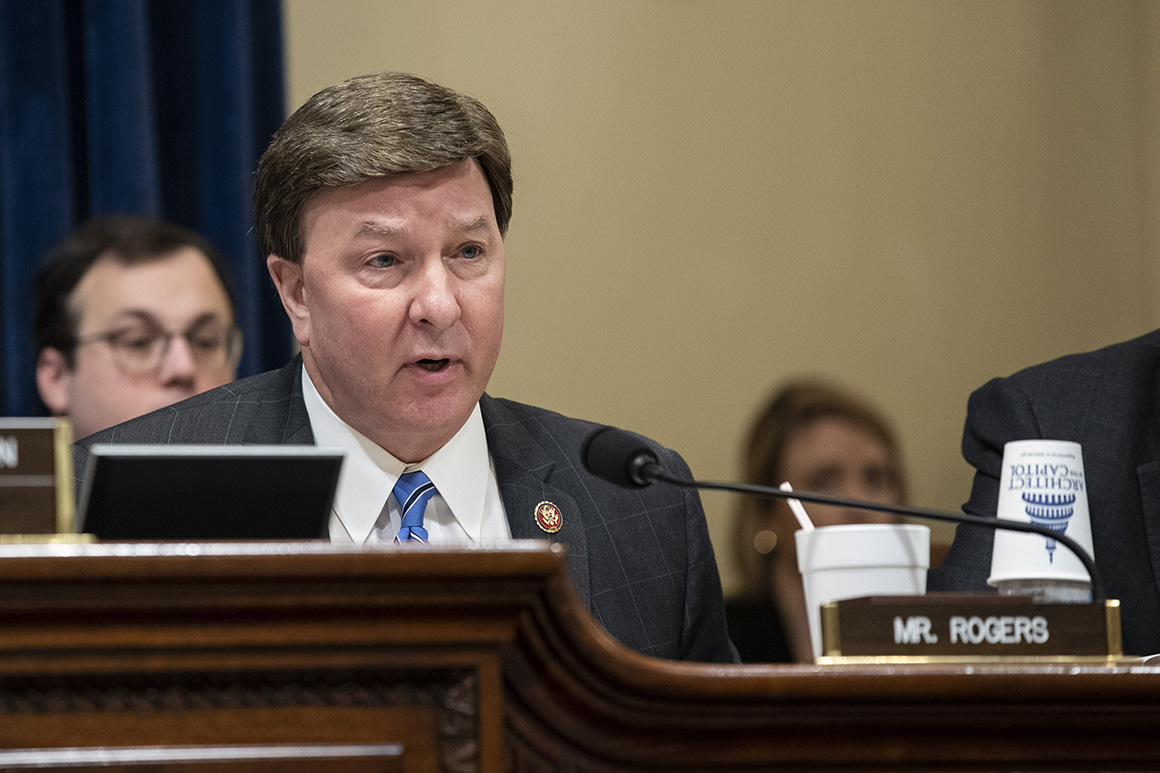House Republicans agreed on Wednesday to lift their decade-long ban on earmarks — a major reversal that will enable the GOP to take advantage of a once-controversial spending practice soon to be revived by Democrats.
Republicans approved a resolution offered by Rep. Mike Rogers (R-Ala.) that would allow their members to request a congressional earmark, as long as certain criteria are met. GOP lawmakers would need to publicly disclose the earmark, include a written justification for the project and verify that they have no financial stake in it, among other requirements. The secret-ballot vote was 102-84, according to sources familiar with the count.
Democrats have already announced similar reforms in their plan to bring back earmarks. But with the majority party planning to soon bring back the spending practice, many Republicans felt like they would be at a huge disadvantage if they decided not to participate while Democrats reaped the rewards of the spending practice. Not to mention that Republicans are feeling good about their chances of reclaiming the House majority next year.
Earmark proponents have argued that allowing lawmakers to ensure money for specific projects would restore power to the legislative branch and shift it away from the Biden administration. They also believe a return to earmarks will help make the institution more functional: The practice can be a useful tool for congressional leaders who are trying to corral votes for bills.
“I’m a yes,” said veteran Rep. Fred Upton (R-Mich.). “With the changes with transparency — it’s not the Upton Road to the Upton House, you have support in writing from local units of government — I think that’s a fair approach.”
The House GOP held a special, two-hour conference meeting last week to debate the topic before Wednesday’s vote. Now the pressure is on for the Senate GOP to follow suit.
The Senate is separately working out an agreement to bring back earmarks. Minority Leader Mitch McConnell said he would defer on the issue to Alabama Sen. Richard Shelby, the top Republican on the Senate Appropriations Committee, and Shelby has said he’s supportive. But Senate Republicans have been generally more receptive to earmarks than their House counterparts.
Sen. Shelley Moore Capito (R-W.Va.), the top Republican appropriator on the Homeland Security spending panel, told POLITICO earlier this week that GOP members are “probably all over the board” on the issue.
“There are some who are serving now who never lived in an earmark world,” Capito said. “I think as a conference we’re going to have a big discussion on this. I don’t know when, but we better do it soon.”
Earmark critics in the GOP, including the hard-line House Freedom Caucus, remain adamantly opposed to the maneuver and are refusing to take advantage of it, even though it will now be permissible for all House Republicans. They argue that the practice is ripe for abuse and would only lead to “pork-barrel” spending.
Republicans first banned the practice following numerous earmark controversies and scandals that helped end the careers of lawmakers in both parties during the early 2000s. Perhaps the best-known earmark flap came over the infamous “bridge to nowhere” — a massive proposal to build a bridge between Ketchikan, Alaska, and a nearby island with an airport.
“We’ve got $30 trillion in debt, and people are tired of the swamp. And the GOP should be ashamed of itself if it jumps headfirst right back into the swamp,” said Rep. Chip Roy (R-Texas), a leading earmark opponent.
House Appropriations Chair Rosa DeLauro (D-Conn.) is already plowing ahead with an overhaul of the politically taboo spending system, which includes capping the overall amount of money spent on earmarks to 1 percent of discretionary spending and allowing lawmakers to submit no more than 10 project requests.
All requests would be posted online, lawmakers and their immediate families can’t have a financial stake in the requests and funds can’t flow to for-profit recipients, DeLauro said. A federal watchdog will periodically audit a sampling of earmarks, and members must justify their requests with evidence from their communities.





















